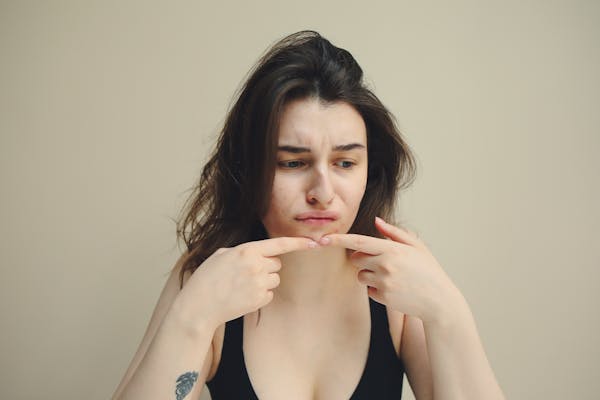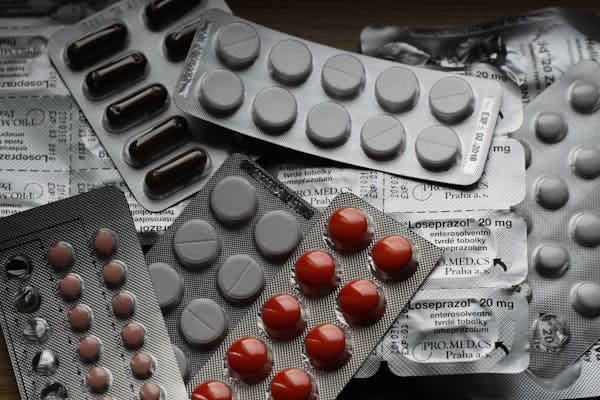Sexual desire, or libido, as we call it in The Biz, is a complex interplay of biological, psychological, and social factors. While it’s common for sexual desire to ebb and flow throughout one’s life, sometimes individuals may experience significant and unexpected fluctuations or struggles with their libido. These fluctuations can be influenced by various factors, and understanding them is crucial for maintaining a healthy and fulfilling sexual life. Low libido is more common than you think. Self-reported rates of men with desire problems range from 4.8% in the United States (Laumann 2009) to 17% in the United Kingdom (Mercer 2003). One Swedish study found that 41% of men between the ages of 66 and 74 experienced low sexual desire (Fugl-Meyer 2004). These numbers seem high, but low desire in women is even higher across all age groups with prevalence ranging from 26.7% among premenopausal women to 52.4% among naturally menopausal women in the United States (West 2008). Issues surrounding desire appear to increase with age across both sexes. As a sexual health expert, I deal with libido problems every day. In my experience, the numbers listed above may underestimate just how prevalent problems of low desire can be. Low desire can be a byproduct of so many different factors, which can make finding a solution difficult sometimes. It can also cause individuals with low desire to avoid seeking help because they can feel defective, or like there’s something inherently wrong with them. What follows is an exploration of some common issues that can negatively impact libido and a discussion of solutions to help you get your mojo back on track.

Hormonal Considerations
From a urological standpoint, assessing and addressing hormonal imbalances is paramount in managing diminished libido. For individuals experiencing symptoms such as decreased libido, erectile, ejaculatory, and/or orgasmic dysfunction, or fatigue, a comprehensive evaluation of hormonal parameters is essential. Hormonal imbalances, particularly involving testosterone, can have a profound impact on sexual desire in both men and women. Testosterone—often, but incorrectly, considered a male sex hormone—plays a crucial role in regulating libido, arousal, and overall sexual satisfaction in all bodies, not just men’s. Decreasing testosterone levels are associated with increasing age, which may partially explain the increase in desire problems in older individuals. Elevated prolactin and abnormalities in estradiol and progesterone levels as well as hypothyroidism have also been associated with low sexual desire in men and women. In women specifically, fluctuations in hormone levels throughout the menstrual cycle, menopause, or conditions such as polycystic ovary syndrome (PCOS) can impact sexual desire as well. Thankfully, most hormonal issues like these can be diagnosed with a simple blood test.

Psychological Factors
Not surprisingly, psychological factors tend to have a profound impact on sexual desire and function. The brain, after all, is one of the most important parts of sex and the interconnectedness of the mind and body is crucial to normal sexual function. However, untangling psychological causes of sexual dysfunction can be complicated. Sometimes these factors can be glaringly obvious, but other times psychological factors can be quite subtle, seemingly innate, or externally imposed. Let’s take a minute to consider the various forms these psychological issues can take.
Self-esteem and Body Image
People with low self-esteem will often report lower sexual desire. Self-esteem issues in men and women may arise from how they view their physical attractiveness to others, insecurities about their bodies, or whether they feel like they adequately measure up to culturally constructed ideas of sexuality. Men who have trouble getting or staying erect and “performing” like they should will often avoid sex and report lower sexual desire. In women, feelings of inadequacy related to arousal and orgasmic function can also influence desire. Women are sometimes left feeling broken if they are unable to achieve orgasm through traditional sexual practices like intercourse.
Mental Health
Mental health, just as much as physical health, can also affect sexual desire. Many studies have highlighted the correlation between depression and low sexual desire in men and women (Carvalheira 2014; Pastuszak 2013, Gracia 2018). Schizophrenia, bipolar disorder, anxiety, panic disorder, OCD, and eating disorders have also been associated with low libido. Unfortunately, the treatments for these conditions can sometimes also negatively impact sex drive as much as the disease itself. Often, collaboration between a sexual health specialist like myself and a mental health provider is pivotal to helping individuals with low desire maximize their libido. We would be remiss not to mention the detrimental effects stress can have on one’s mental health and sex drive. Stress can trigger the release of cortisol, a hormone associated with the body’s “fight or flight” response, leading to decreased libido and sexual responsiveness over time. Unfortunately, there’s no foolproof way to eliminate stress. But, as I tell all my patients, “Stress ain’t going nowhere. What matters most is how you deal with it.”
Interpersonal Relationships
Like stress, there is no avoiding issues that come up in relationships. If you’re with someone long enough, they’re bound to happen. These issues can include communication difficulties, unresolved conflicts, and lack of emotional or physical intimacy. Couples may experience feelings of resentment, frustration, or disconnection, further exacerbating sexual concerns and contributing to relationship distress. Relationship problems have been strongly associated with lower sex drive in men and women. Desire problems have also been linked to long-term relationships and to not finding one’s partner attractive (Carvalheira 2014). Understanding how a person fits within their partnered relationship (or lack thereof) is imperative to helping them find solutions to their low libido.
Sociocultural Beliefs and Practices
As much as we hate to admit it, we are all products of our upbringing. So, understanding how someone was raised to see themselves sexually can sometimes provide clarity into their desire issue. Learning a person’s religious faith, what they were taught about sexuality and “appropriate” relationship and desire models from their family and neighboring community, and how many sexual partners they have had or not had, can all provide clues as to why they might be struggling with low libido.

Medications and Sexual Side Effects
Several medications, including blood pressure-lowering drugs, antidepressants, and hormonal contraceptives, can have side effects that impact sexual desire and function. The antidepressant class known as selective serotonin reuptake inhibitors (SSRIs) are notorious for causing sexual dysfunction, including decreased libido, delayed ejaculation, diminished arousal, and erectile dysfunction. Similarly, antihypertensive medications such as beta-blockers and diuretics may contribute to sexual side effects by affecting blood flow and hormone levels. Even oral contraceptive pills that millions of women take for all kinds of reasons beyond contraception can sometimes negatively impact sexual function, including libido. Not all providers are aware of the possible negative sexual side effects that these medications can have. Sometimes, you may need to be your own advocate. If you think your low sex drive may be related to something you’re being prescribed, bring it up to your healthcare provider.
Other Health Issues
Libido doesn’t exist in a vacuum and is often affected by an individual’s overall health. Numerous comorbidities have been linked to low sexual desire. These include coronary heart disease, heart failure, diabetes, chronic kidney disease, neurological conditions like multiple sclerosis, gastrointestinal disorders like inflammatory bowel disease, Crohn’s disease, and ulcerative colitis, and HIV, to name a few. Fatigue and sleep disorders can also significantly impact sexual desire by disrupting hormone regulation, increasing stress levels, and diminishing energy levels. Individuals with sleep disorders such as insomnia, sleep apnea, or restless leg syndrome may experience disrupted sleep patterns, daytime fatigue, and diminished quality of life. Over time, these factors can contribute to decreased libido and sexual satisfaction.

Tackling the Problem
Once you understand the various factors at play in a person’s low sexual desire, then you can begin to offer them targeted treatments to boost their libido. Addressing hormonal issues like low testosterone with testosterone replacement therapy or menopause with hormone replacement therapy have been associated with improvements in desire for men and women, respectively. If it seems medication-related, a simple dose adjustment or switching to an appropriate therapeutic alternative can make a big difference. Lifestyle and behavioral modifications like increasing exercise, eating a healthier diet, reducing alcohol consumption, curbing bad habits like smoking, establishing a regular sleep schedule, optimizing your sleep environment, and practicing relaxation techniques may complement medical treatments in enhancing sexual health and desire. As previously suggested, working concurrently to improve one’s mental health and developing strategies to cope with stress is equally important. Cognitive-behavioral therapy, couple’s therapy, and individualized sex therapy can all help improve libido, as can practices like mindfulness, meditation, and sensate focus therapy.
Conclusion
Low libido is not always a bad thing. Nor does it mean that there is something inherently wrong with you. In fact, plenty of people have what many might consider a low sex drive at baseline. Low libido only becomes a problem if it represents a change from that baseline or begins to cause you distress or interpersonal conflict with your partner(s). If that’s the case, say something to your healthcare provider. Your low desire may be indicative of a larger physical or psychological problem that you have yet to identify. The first step in fixing your desire problem may require you to speak up and ask for help.
Laumann EO, Glasser DB, Neves RC, Moreira ED Jr; GSSAB Investigators’ Group. A population-based survey of sexual activity, sexual problems, and associated help-seeking behavior patterns in mature adults in the United States of America. Int J Impot Res. 2009 May-Jun;21(3):171-8. doi: 10.1038/ijir.2009.7. Epub 2009 Feb 26. PMID: 19242482.
Mercer CH, Fenton KA, Johnson AM, Wellings K, Macdowall W, McManus S, Nanchahal K, Erens B. Sexual function problems and help-seeking behaviour in Britain: national probability sample survey. BMJ. 2003 Aug 23;327(7412):426-7. doi: 10.1136/bmj.327.7412.426. Erratum in: BMJ. 2003 Sep 20;327(7416):649. PMID: 12933730; PMCID: PMC181259.
Fugl-Meyer KS, Arrhult H, Pharmanson H, Bäckman AC, Fugl-Meyer AM, Fugl-Meyer AR. A Swedish telephone help-line for sexual problems: a 5-year survey. J Sex Med. 2004 Nov;1(3):278-83. doi: 10.1111/j.1743-6109.04040.x. PMID: 16422957.
West SL, D’Aloisio AA, Agans RP, Kalsbeek WD, Borisov NN, Thorp JM. Prevalence of low sexual desire and hypoactive sexual desire disorder in a nationally representative sample of US women. Arch Intern Med. 2008 Jul 14;168(13):1441-9. doi: 10.1001/archinte.168.13.1441. PMID: 18625925.
Carvalheira A, Traeen B, Štulhofer A. Correlates of men’s sexual interest: a cross-cultural study. J Sex Med. 2014 Jan;11(1):154-64. doi: 10.1111/jsm.12345. Epub 2013 Oct 28. PMID: 24344639.
Pastuszak AW, Badhiwala N, Lipshultz LI, Khera M. Depression is correlated with the psychological and physical aspects of sexual dysfunction in men. Int J Impot Res. 2013 Sep;25(5):194-9. doi: 10.1038/ijir.2013.4. Epub 2013 Mar 7. PMID: 23466661.
Gracia CR, Sammel MD, Freeman EW, Liu L, Hollander L, Nelson DB. Predictors of decreased libido in women during the late reproductive years. Menopause. 2018 Nov;25(11):1238-1243. doi: 10.1097/GME.0000000000001225. PMID: 30358719.
